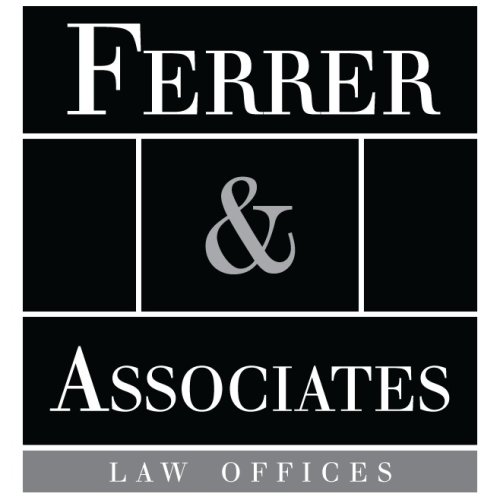Best Hiring & Firing Lawyers in Philippines
Share your needs with us, get contacted by law firms.
Free. Takes 2 min.
Or refine your search by selecting a city:
List of the best lawyers in Philippines

Dagsaan Monterde Castillo Law and Notary Public (DMC LAW)
15 minutes Free ConsultationAbout Hiring & Firing Law in Philippines
In the Philippines, the laws governing hiring and firing are primarily enshrined in the Labor Code of the Philippines. These laws establish the legal framework for the rights and duties of both employers and employees. The primary intent is to protect workers’ rights while also considering the business requirements of employers. Hiring practices include requirements for fair treatment and discrimination avoidance, whereas firing practices involve ensuring just causes or authorized causes for termination, alongside required procedures and possible severance obligations.
Why You May Need a Lawyer
Legal counsel might be essential in various scenarios concerning hiring and firing in the Philippines. For example, companies often seek lawyers to help draft employment contracts or to ensure compliance with labor laws. Employees may seek legal advice if they believe they have been wrongfully terminated, discriminated against in hiring practices, or if they face issues related to contractual terms. Additionally, navigating disputes or understanding the intricate procedural requirements of dismissal can necessitate legal guidance.
Local Laws Overview
The Labor Code of the Philippines outlines several key laws concerning hiring and firing. Employment contracts must be clear regarding terms, conditions, and the nature of the work. Anti-discrimination laws prohibit bias based on gender, age, religious beliefs, and other protected characteristics. Dismissals should be based on just causes (e.g., serious misconduct) or authorized causes (e.g., redundancy), with processes such as due notice and opportunity for defense accorded to the affected employee. Failure to follow proper procedures may result in the requirement to pay back wages or reinstatement.
Frequently Asked Questions
1. What constitutes "just cause" for termination?
Just causes include serious misconduct, habitual neglect of duties, fraud, breach of trust, and commission of a crime, among others.
2. What are "authorized causes" for termination?
Authorized causes include installation of labor-saving devices, redundancy, retrenchment to prevent losses, and closure or cessation of business operations.
3. What is the required notice period for termination?
For both employer and employee, a 30-day notice is standard unless agreed otherwise in the contract. Immediate termination may occur in cases of just cause.
4. Are employers required to provide severance pay?
Yes, the law mandates separation pay for dismissals due to authorized causes, but not for just cause terminations.
5. Can an employee be terminated during probation?
A probationary employee can be terminated if they fail to meet the reasonable standards made known to them at the start of their employment.
6. What should an employee do if they think they were wrongfully terminated?
An employee may file a complaint with the Department of Labor and Employment (DOLE) or seek legal assistance to initiate legal proceedings.
7. Is a written employment contract necessary?
While not strictly required for all types, having a written contract provides legal clarity and security for both parties.
8. What protections exist against discrimination in hiring?
The Labor Code protects against discrimination based on sex, race, creed, and marital status, ensuring fair opportunities for all.
9. How are disputes over employment dismissal resolved?
Disputes can be resolved by mediation, arbitration, or formal legal proceedings, often facilitated by DOLE.
10. When should I consider consulting a lawyer?
Consulting a lawyer is advisable when facing complex employment issues, drafting employment documents, or engaging in potential litigation.
Additional Resources
The Department of Labor and Employment (DOLE) is a primary entity ensuring labor law compliance and resolution of employment disputes. Labor unions and occupational groups also offer guidance and advocacy. Legal aid organizations might provide assistance for those with limited resources.
Next Steps
If you require legal assistance, consider consulting a labor lawyer with a good reputation and relevant experience. Gather all pertinent documents related to your employment situation, such as contracts, communications, and notices. Schedule a consultation to discuss your circumstances and receive personalized legal advice.
Lawzana helps you find the best lawyers and law firms in Philippines through a curated and pre-screened list of qualified legal professionals. Our platform offers rankings and detailed profiles of attorneys and law firms, allowing you to compare based on practice areas, including Hiring & Firing, experience, and client feedback.
Each profile includes a description of the firm's areas of practice, client reviews, team members and partners, year of establishment, spoken languages, office locations, contact information, social media presence, and any published articles or resources. Most firms on our platform speak English and are experienced in both local and international legal matters.
Get a quote from top-rated law firms in Philippines — quickly, securely, and without unnecessary hassle.
Disclaimer:
The information provided on this page is for general informational purposes only and does not constitute legal advice. While we strive to ensure the accuracy and relevance of the content, legal information may change over time, and interpretations of the law can vary. You should always consult with a qualified legal professional for advice specific to your situation.
We disclaim all liability for actions taken or not taken based on the content of this page. If you believe any information is incorrect or outdated, please contact us, and we will review and update it where appropriate.
Browse hiring & firing law firms by city in Philippines
Refine your search by selecting a city.















